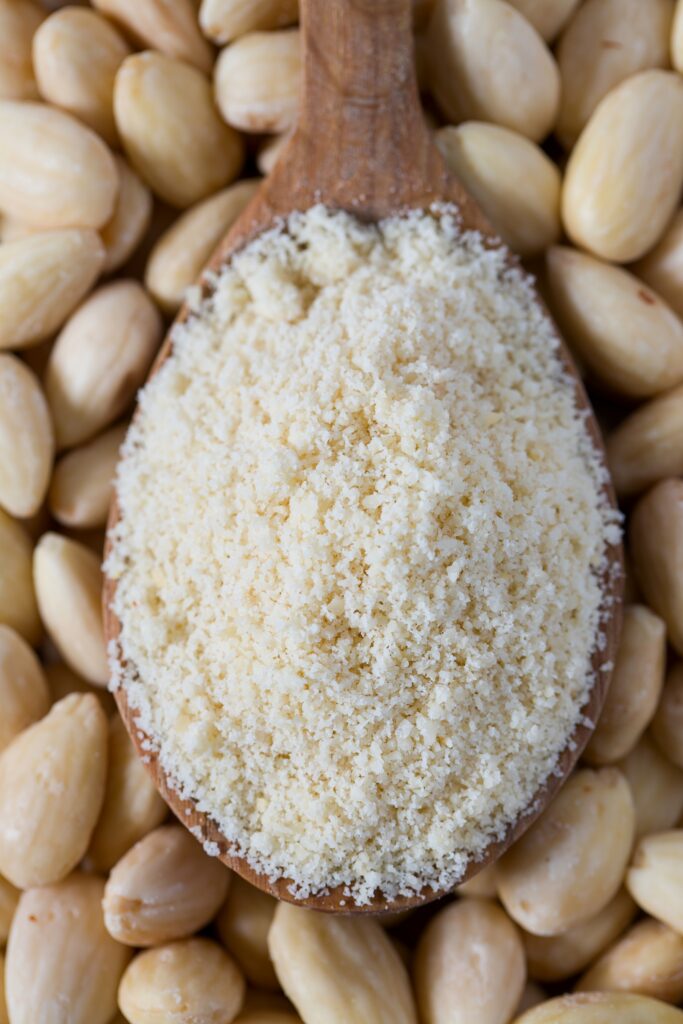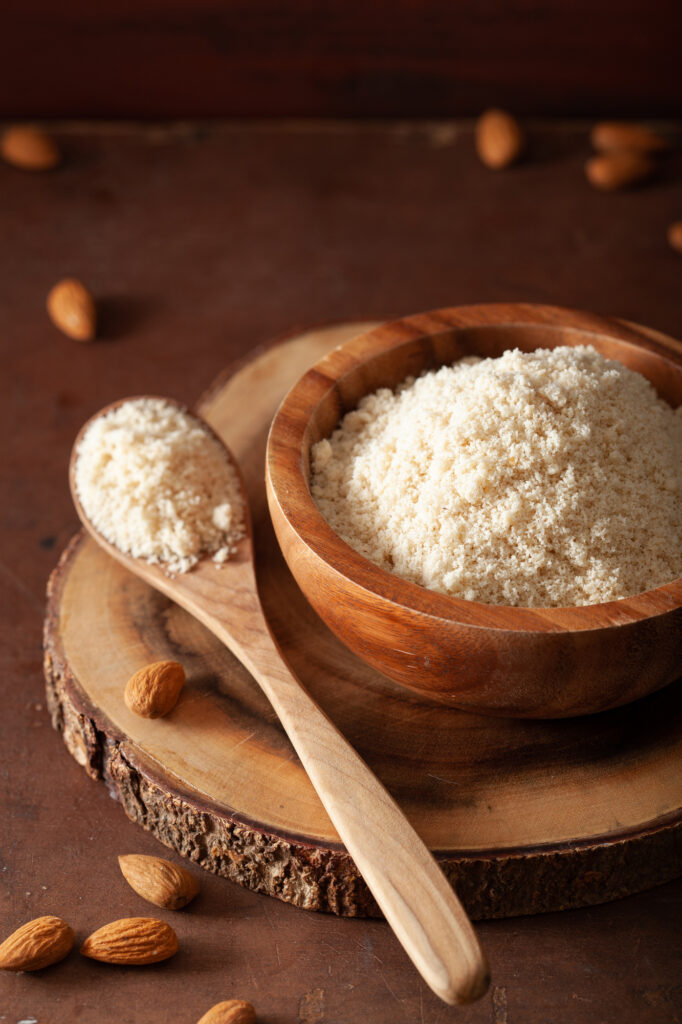How to Store Almond Flour: So You Don’t Ruin It!
This post contains affiliate links including Amazon affiliate links.
How do you store almond flour?
When I went gluten free, almond flour became a staple in my kitchen. I never thought about how to store almond flour, which was a mistake. You need to know how to store it to avoid ruining this flour.
Almond flour, the versatile and nutritious gluten free alternative flour, is a staple in many kitchens. Its delicate flavor and fine texture make it an ideal ingredient for a wide variety of gluten free recipes.
I love using almond flour for making cookies, bars, and pizza crust.
However, to preserve its freshness and ensure its longevity, proper storage techniques are important.
How to Store Almond Flour
1. Use Airtight Containers
Invest in high-quality glass jars or food-grade plastic containers with secure lids. These storage containers will shield your almond flour from moisture, air, and unwanted invaders, preventing clumping and maintaining its velvety texture.
2. Store Almond Flour Somewhere Cold
Since almond flour is ground up almonds you should keep it as cold as possible to prevent the nuts from going rancid. Consider storing it in the fridge or freezer.
3. How to store almond flour long term
For long-term storage, store almond flour in the freezer. If you bought almond flour in bulk (because you went crazy at Costco), then store the extra bags of almond flour in your freezer.
4. Store it Somewhere Dark
If you can’t store almond flour in your fridge or freezer, then keep your almond flour stored somewhere away from light and heat. Find a cool, dark place in your kitchen where you can store it. Cupboards away from direct sunlight or pantry shelves will serve as perfect hideaways.
Does almond flour need to be refrigerated?
No, almond flour does not need to be refrigerated. But it is best to refrigerate it to keep it fresh and extend its shelf life.
How long does almond flour last?
For almond flour shelf life, you need to go by the best-before date on the package of almond flour. A bag of almond flour that has been opened should last another 1-2 months past that date. Your almond flour will last up to 1 year if you keep it stored in either the fridge or the freezer.
DISCLOSURE: Not intended for the treatment or prevention of disease, nor as a substitute for medical treatment, nor as an alternative to medical advice. Use of recommendations is at the choice and risk of the reader. Ditch the Wheat is a participant in the Amazon Services LLC Associates Program. As an Amazon Associate I earn from qualifying purchases. I may receive monetary compensation or other types of remuneration for my endorsement, recommendation, testimonial and/or link to any products or services from this blog. I only endorse products that I believe in.
Carol Lovett is the founder of Ditch the Wheat and a Globe and Mail bestselling author of the cookbook, Ditch the Wheat. She has been eating gluten free since 2010. She loves all things food, natural living, and spiritual. She's also a reiki master and crystal healer.
Gluten Free Resources
Do you need help with gluten free meals?
I recommend this meal-planning app. It makes cooking gluten free dinners extremely easy and family-friendly.
What gluten free snacks can I eat?
Lots! I have a ton of practical gluten free snack recipes in my cookbook.
How can I eat dessert on a gluten free diet?
You can 100% eat dessert while eating gluten free. Try my dessert cookbook for easy gluten free dessert recipes.
How do I know what is gluten free and what isn’t?
I have a whole section is it gluten free?
How do I make substitutions?
If you need substitution advice I created a ton of resources here.









